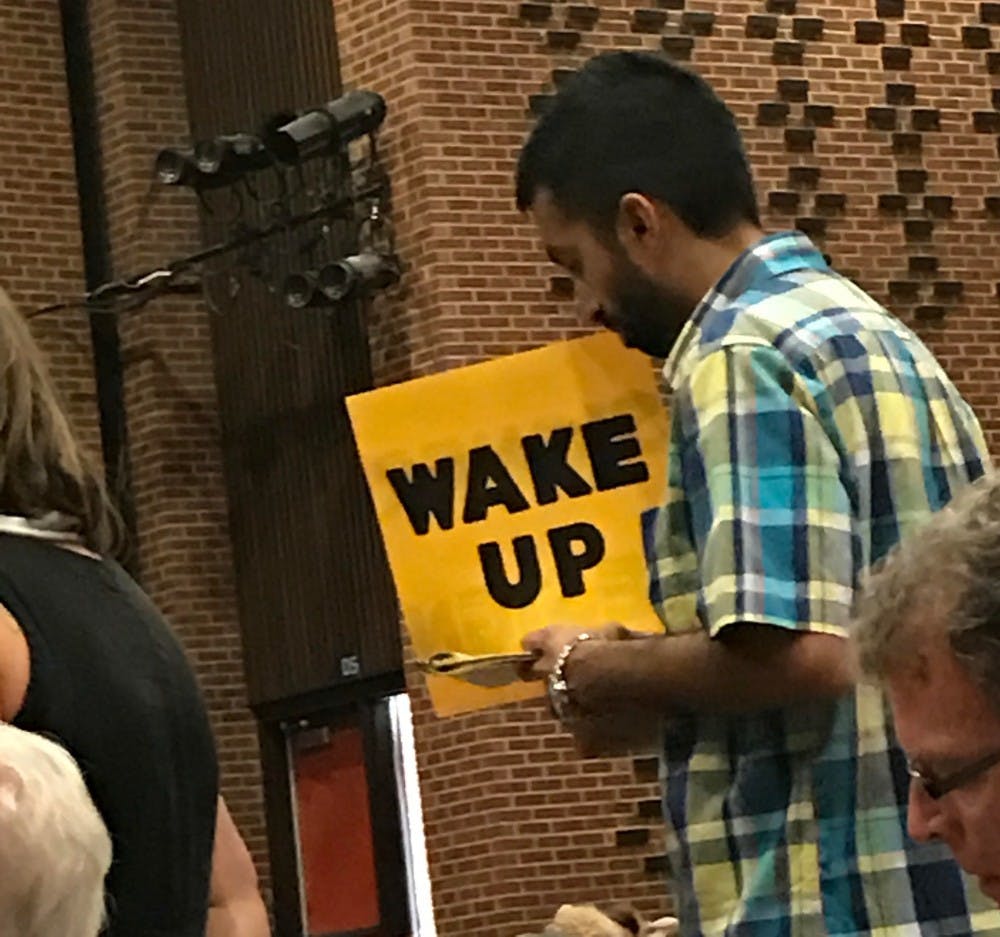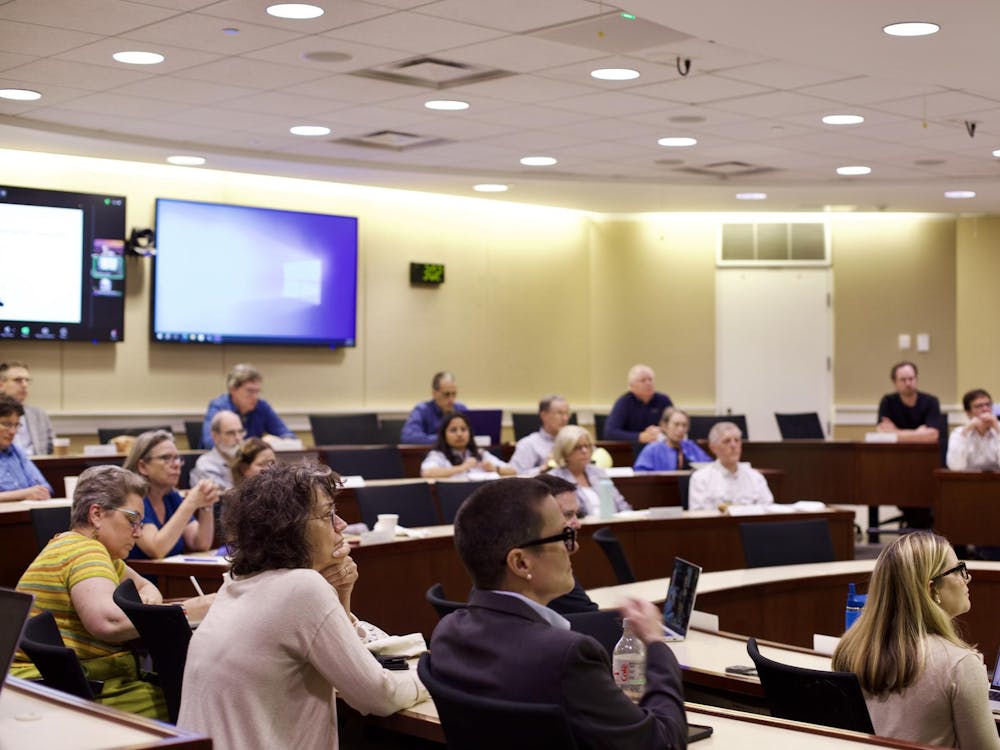Hundreds of Charlottesville residents attended a town hall held Sunday where many voiced concerns about how local authorities handled the white nationalist “Unite the Right” rally on Aug. 12.
“We are in pain,” said Charlene Green, who works with the city’s Office of Human Rights. “We are in a lot of pain, and we have seen lots of emotion. I think we will continue to see lots of emotion.”
Green opened the town hall, which was organized by the city and the Community Relations Services division of the U.S. Department of Justice. The event was held nearly two weeks after a tumultuous weekend in Charlottesville that resulted in three deaths and numerous injuries.
When Suzanne Buchanan, a conciliation specialist with Community Relations Services, began the discussion portion of the town hall, attendees immediately expressed dissatisfaction with the representatives of CRS by booing her.
One community member said many Charlottesville citizens feel dissatisfied with their leaders, particularly University President Teresa Sullivan and leaders in the federal government.
“We don’t trust your boss, and we surely don’t trust your boss’s boss,” he said to Buchanan, claiming that people in Charlottesville do not trust the Department of Justice or Attorney General Jeff Sessions.
Several community members also expressed dissatisfaction with local leaders such as Mayor Mike Signer and Chief of Police Al Thomas.
One community member called for Signer’s resignation, claiming that Signer only represented the rich in Charlottesville. This same citizen also called for a “citizens’ review board” to help to evaluate problems that arise in the city.
Other attendees were not pleased by the press presence at the event. Robin Hoffman, the host of Charlottesville Public Access Television show “A Day A Minute,” condemned the invitation of the media to the town hall.
“Whoever decided to do that made a mistake,” Hoffman said.
Some citizens said community leaders should not have given the white nationalist demonstrators a permit.
“One fear I have is, are we going to have another ‘free speech rally’ here?” said Carrie Schaffer, a Charlottesville resident.
Another community member said while nonresidents are responsible for much of the “Unite the Right” rally violence, the city did not handle the aftermath of the rally well. She said she believes initial work to install parking meters on Fourth Street following the rally was inappropriate.
On Aug. 17, a city worker was spotted drilling holes to prepare for the installation of parking meters near a memorial to Heather Heyer at the intersection of Fourth Street and Water Street.
Heyer was killed in the Aug. 12 car attack that also left at least 35 injured. The site has since become a memorial of chalk drawings and flowers.
City Manager Maurice Jones stopped the drilling work after residents complained.
“It was a real stark reminder to me that our city has a lot of issues to work on,” she said. “It was a clear reminder that Charlottesville has its own house to clean.”
City Council approved a pilot parking meters program for downtown in April 2016, and a six-month program is set to start Sept. 5.
Much of the audience began to leave before the time planned for the town hall to end. Shortly thereafter, one attendee said while much of the audience had already left, the audience was not representative of the demographics of Charlottesville, implying that people of color in the community did not attend the town hall. Other attendees shouted that people of color in Charlottesville had been silenced.
Louisa, a witness to the Aug. 12 car attack, said people of color stayed home instead of attending the rally because they had been silenced by a “Summer of Hate.” Vice Mayor Wes Bellamy gave her a standing ovation.
Near the end of the town hall, a community member alleged that Bellamy and other city councilors were pandering to minority voters when they voted to remove the Robert E. Lee statue, and then claimed those in favor of the removal of statue are sponsoring hatred.
“You all hate,” he shouted when some in the audience disputed his claims.
Afterwards, a verbal conflict between him and another audience member erupted, but it was quickly dissolved by another community member.
Buchanan attempted to end the town hall by asking audience members when another time to meet would be appropriate before other attendees began to speak. Some asked Bellamy questions about the validity of the structure of Charlottesville’s local government.
The representatives of Community Relations Services then ended the town hall, noting that community leaders will work to address issues discussed at the town hall. Buchanan said the next recovery town hall will be in about two weeks.







